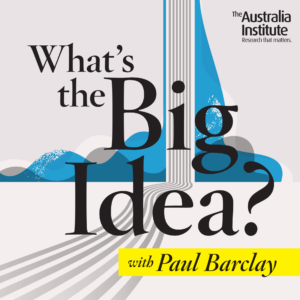Like most of the US allies, Australia is caught between a rock and a hard place.
The rock is Israel’s intransigence and the implacability of Prime Minister Benjamin Netanyahu‘s coalition partners.
The hard place is the immense suffering of the Palestinian and, now, the Lebanese people.
“Acceptance” of Israel’s extreme brutality in the assertion of its right to national security and “concern” at the slaughter of 30,000 non-combatants, including over 10,000 children, are irreconcilable.
Trying to steer between the two results in the impotence and timidity that distinguishes the procession of state leaders and foreign ministers now talking at the UN General Assembly.
Its repeated claims to indispensability and world leadership notwithstanding, the US is as impotent as its allies.
Despite its repeated efforts at brokering, it has been little more than a bystander since 1948.
Netanyahu dismisses President Joe Biden’s suggestions and Anthony Blinken’s advice with scorn, preferring instead to take the Middle East to the brink of war, sure in his belief that the US is powerless to apply sanctions, cut off arms and demand a ceasefire.
Israel is certain that the US will not permit it to fail.
But driving Hamas and, now, Hezbollah further underground – literally – while reducing neighbourhoods to rubble will only increase the desperation of the Palestinian and Lebanese people and encourage further acts of terrorism and missile assault by both.
It will thus diminish rather than strengthen Israel’s long-term security.
Day by day, the problems are compounding and the situation is worsening. Iran is moving towards mobilisation. And Russia is sitting by, enjoying the misery of all parties as it prosecutes its war in Ukraine.
It is a case where sleepwalking and rushing headlong are the same thing.
Biden is in an historically unique position to bring matters to a head. Out of the presidential race and with nothing to lose, he can play the statesman with everything to gain. More than any other world leader, he can insist that the UN do its job by bringing the conflicting parties together.
Name calling and philosophical debates about what is terrorism and what is not (the state of Israel was born out of terrorism, it should be remembered) cannot be allowed to prevent a ceasefire and a conference of all concerned parties. “We do not negotiate with terrorists” is simply an excuse for catastrophe.
Historically, sustained diplomacy has provided some of the truly powerful instances of statecraft creating a better world.
The 1648 Peace of Westphalia, which concluded the disaster of the 30 Years War that saw Europe depopulated by over 30 per cent, brought the warring parties together in a fundamental realignment of Europe’s way of doing business.
Curiously, the papacy filled the role of facilitator to which the US might now aspire. It would be a substantial legacy.
The 1945 creation of the UN, in which Australia played more than a bit part, created new hope from the rubble of WWII.
Sure, the UN needs rejuvenation and the veto power of the permanent members of the Security Council need re-consideration, as Penny Wong intimated in recent remarks.
But it remains an available resource that lends authority to multilateral negotiation, the most demanding form of diplomacy as Cardinal Richelieu discovered.
In its own way, the formation of the Association of South East Asian Nations (ASEAN) in 1967 ended a period of tension and confrontation between the five principal neighbouring states of south-east Asia. Dismissed by some high-handed “realist” commentators as little more than a talk-shop, ASEAN has succeeded in maintaining the peace and stability of the region for over half a century, and invested in levels of prosperity that were unimaginable.
The establishment of the European community in 1957 and, more importantly, the European Union in 1993, with its own parliament to transform agreement into binding legislation, demonstrates what states that are not naturally aligned can do when human security and the security of the citizens becomes the central performance indicator of national security.
It represents the transformation of statecraft into supra-statecraft. Although Germany foots a major part of the bill, it evidently finds this contribution infinitely more attractive than its own repeated demolition and consequent reconstruction, its twofold fate in the 20th century.
Perhaps what the Middle East needs most of all is a supra-state solution to its inter-state problems.
And to that end, it desperately needs leaders of imagination and good-will to lead people away from armed aggression to engaged and sustained diplomacy. Israel, Iran and Saudi Arabia may need to foot most of the bill, though, like Germany, all would find the investment significantly less expensive than war.
While no one should underestimate the difficulty of building a peace between such ideologically opposed antagonists, what option is there apart from mutual destruction and the threat of nuclear weapons use?
And in this, the global community has just as much interest as the belligerents themselves.
Between the Lines Newsletter
The biggest stories and the best analysis from the team at the Australia Institute, delivered to your inbox every fortnight.
You might also like
No peace without accountability: Sydney Peace Laureate Navi Pillay
Donald Trump may have declared the war on Gaza over, but a welcome-but-shaky ceasefire and lasting peace are not the same thing.
Australia has power, why don’t we act like it? | Allan Behm
In a world of uncertainty, it is more important than ever for Australia to stop dismissing ourselves as a ‘middle power’ and start exerting our influence on the global stage.
As the US chooses destruction over diplomacy in Iran, Australia has to decide between principle and prostration
Australia, like Little Sir Echo, whimpers after the world’s premier bully bombs the ‘bully of the Middle East’.



